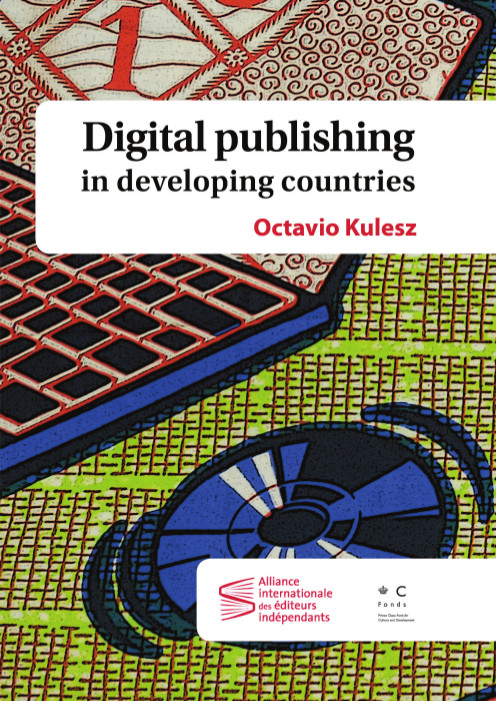Andrei Smirnov, Liubov Pchelkina: Generation Z: Russian Pioneers of Sound Art and Musical Technology in 1910-1930 (2011) [English/Hungarian]
Filed under booklet | Tags: · 1910s, 1920s, art, art history, avant-garde, music, music history, russia, sound, sound art, technology, utopia

Variophone, theremin terpsitone, rhythmicon, emiriton, ekvodin, graphical sound – just to mention a few of the amazing innovations of the beginning of the 20th century in Soviet Russia, a country and time turbulent with revolutions, wars and totalitarian dictatorship.
While the history of Russian post-revolutionary avant-garde art and music is fairly well documented, the inventions and discoveries, names and fates of researchers of sound, creators of musical machines and noise orchestras, founders of new musical technologies have been largely forgotten except, perhaps, Leon Theremin, inventor of the first electronic musical instrument, the theremin.
This community of creators, however, was inherently incompatible with the totalitarian state. By the late 1930s it became effectively written out of histories, wiped out from text books.
Many of their ideas and inventions, considered as utopian at that time, were decades later rein¬vented abroad. We still use them today not knowing their origin.
This booklet was produced for the Budapest edition of a traveling exhibition curated by Andrei Smirnov of the Theremin Center and Liubov Pchelkina of the State Tretyakov Gallery.
Publisher OSA Archivum, Budapest, 2011
ISBN 9789638853820
20 pages
exhibition (from the curators)
exhibition (gallery website)
Octavio Kulesz: Digital Publishing in Developing Countries (2011) [English/French/Spanish]
Filed under report | Tags: · africa, china, e-book, india, latin america, middle east, publishing, russia

E-books, print on demand, online sales sites, the boom in mobile phones… new technologies are profoundly transforming the way texts circulate. Developing countries, however, which face serious limitations in infrastructure, have a considerable challenge ahead of them.
What new actors are emerging in the countries of the South, outside of the powerful platforms already existing in the US, Europe and Japan? Is it conceivable that there may be an autonomous evolution of digital publications in developing countries, entirely independent of the richest nations? What support policies could be implemented to promote the growth of this new industry and accompany traditional actors in the process of adapting to the changes involved?
The digital experiences undertaken in the South suggest that new technologies represent a great opportunity for developing countries – particularly in terms of diffusion –, but on the condition that local entrepreneurs seek out original models adapted to the concrete needs of their communities.
This study was carried out by Octavio Kulesz (Editorial Teseo and Digital Minds Network) in October 2010, and commissioned by the International Alliance of Independent Publishers, with the support of the Prince Claus Foundation.
ISBN 9782951974760 [EN]
156 pages
via Marcell Mars
Download PDF, EPUB, MOBI [English]
Download PDF, EPUB, MOBI [French]
Download PDF, EPUB, MOBI [Spanish]
Alexei Kruchenykh, et al.: Victory Over the Sun (1912–) [RU, EN, DE]
Filed under booklet | Tags: · avant-garde, futurism, music, opera, russia, theatre

“Victory over the Sun (Победа над Cолнцем; Pobeda nad Solntsem) is a Russian Futurist opera premiered in 1913 at the Luna Park in Saint Petersburg.
The libretto written in zaum language was contributed by Alexei Kruchenykh, the music was written by Mikhail Matyushin, the prologue was added by Velimir Khlebnikov, and the stage designer was Kazimir Malevich. The performance was organized by the artistic group Soyuz Molodyozhi. The opera has become famous as the event where Malevich made his first Black Square painting (in 1915).
The opera was intended to underline parallels between literary text, musical score, and the art of painting, and featured a cast of such extravagant characters as Nero and Caligula in the Same Person, Traveller through All the Ages, Telephone Talker, The New Ones, etc.
The audience reacted negatively and even violently to the performance, as have some subsequent critics and historians.” (Wikipedia)
Published in Moscow, Dec 1912
28 pages
English translation
Translated by Ewa Bartos and Victoria Nes Kirby
Published in The Drama Review 15:4, Fall 1971, pp 106-124
Kruchenykh at Monoskop wiki
Wikipedia
Pobeda nad solntsem (Russian, JPGs)
Victory Over the Sun (English, 1971)
Sieg über die Sonne (German, trans. & comm. Gisela Erbslöh, 1976, JPGs/PDF, added on 2015-8-10)
Audio recording (Monoskop wiki)
Comment (0)
